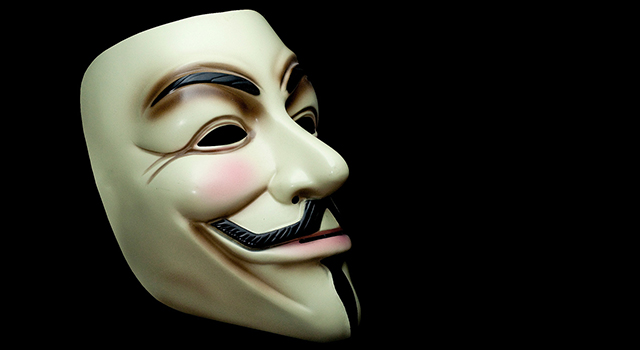
As if hacker affiliations weren’t complicated enough, the so-called official Anonymous group of South Africa on Wednesday denied any alliance with Team GhostShell, the Internet group which on Tuesday posted just over 100 separate documents with private information from companies including Sasol, Woolworths and Post-Net.
GhostShell said it had “decided that a new Anonymous branch needs to be created to enforce the peoples [sic] will in [South Africa] and form an open bond with the rest of the world, just so that anyone can know at all times the current events that happen there”.
“Within the last 72 hours, a group calling themselves The Ghost Shell who claimed to be allied with Anonymous South Africa performed a series of penetrations on various systems and leaked the information of some [700 000] individuals.” Anonymous stated. “We condemn these attacks in the strongest possible terms … as we believe they serve little purpose to the cause and ethos we are sworn to.”
Team GhostShell also leaked confidential data containing staff and student information from several African universities, which Anonymous particularly opposed, stating it was against “the actions of any group that attacks the academic sector”.
Anonymous South Africa claimed that it was made up of 20 or 30 active people in South Africa, with “hundreds more” internationally. The organic collective of Anonymous, however, was modelled on the idea that there was no official membership, and that anyone who believed in the same values of Anonymous could be involved, thus its pseudo-ominous tagline: “We are legion.”
Both GhostShell and Anonymous claimed their intent was to stop corruption in South Africa’s government and create “a better South Africa for all”. Their tactics, however, seem to be quite different.
Anonymous South Africa stated it was opposed to revealing the information of innocent individuals. On Tuesday it contacted several media outlets, including the Mail & Guardian, posting a link to its video with the comments: “We are Anonymous, and we have turned our focus on the corrupt practices in South Africa. For two [sic] long we have watched in silence as tax payers [sic] money is stolen, as blood is spilled, as the police turn a blind eye, instead choosing to line their own pockets. So now, the eyes of the collective will turn, look at South Africa, and then expose that which we see the world at large.”
One of the key issues outlined by Anonymous South Africa in the video was the ANC’s reaction to First National Bank’s “You can help” advertising campaign. The ANC said the campaign, which featured schoolchildren talking about their disappointments and hopes for South Africa, was an attack on the president and bordered on treason.
ANC spokesman Keith Khoza, after viewing the YouTube video, said on Wednesday: “Clearly somebody is lying to instigate against the ANC, using inaccurate and false information that cannot be validated. South Africans are not passing recipients of information and cannot be misled by unidentified individuals.”
When told that Anonymous intended to reveal censored information that exposed corruption, Khoza said: “Anybody who is responsible for revealing classified information will have to face the consequences.”
The Anonymous collective have had tangible impact. Its iconic masks, in reference to the political action film V for Vendetta, were used in major marches, including the Occupy Wall Street demonstrations against the rich 1% of the US in light of the worldwide economic recession, as well as the recent Tahrir square marches in Egypt that brought about revolution in the North African country that ousted dictator Hosni Mubarak.
Its Web infiltrations, however, have not been without repercussions. Last year, the Federal Bureau of Investigation arrested 16 Anonymous members in the US in connection with attacks on MasterCard, Visa and Amazon, and charged them with crimes that carry 10-year prison terms. Anonymous claimed it was acting in retribution to the US government dismantling articles that had been revealed on WikiLeaks.
Whether Anonymous’s South African spree will have any effect, or pass over like an Internet meme — a vaguely amusing ripple in the online stratosphere — remains to be seen. The group said it had plans to hold public marches in the future and predicted that its video would go out to about 800 000 Twitter followers.
The video’s hit counter is currently sitting on 506. — (c) 2013 Mail & Guardian
- Visit the Mail & Guardian Online, the smart news source
- Image: Ben Fredericson/Flickr




